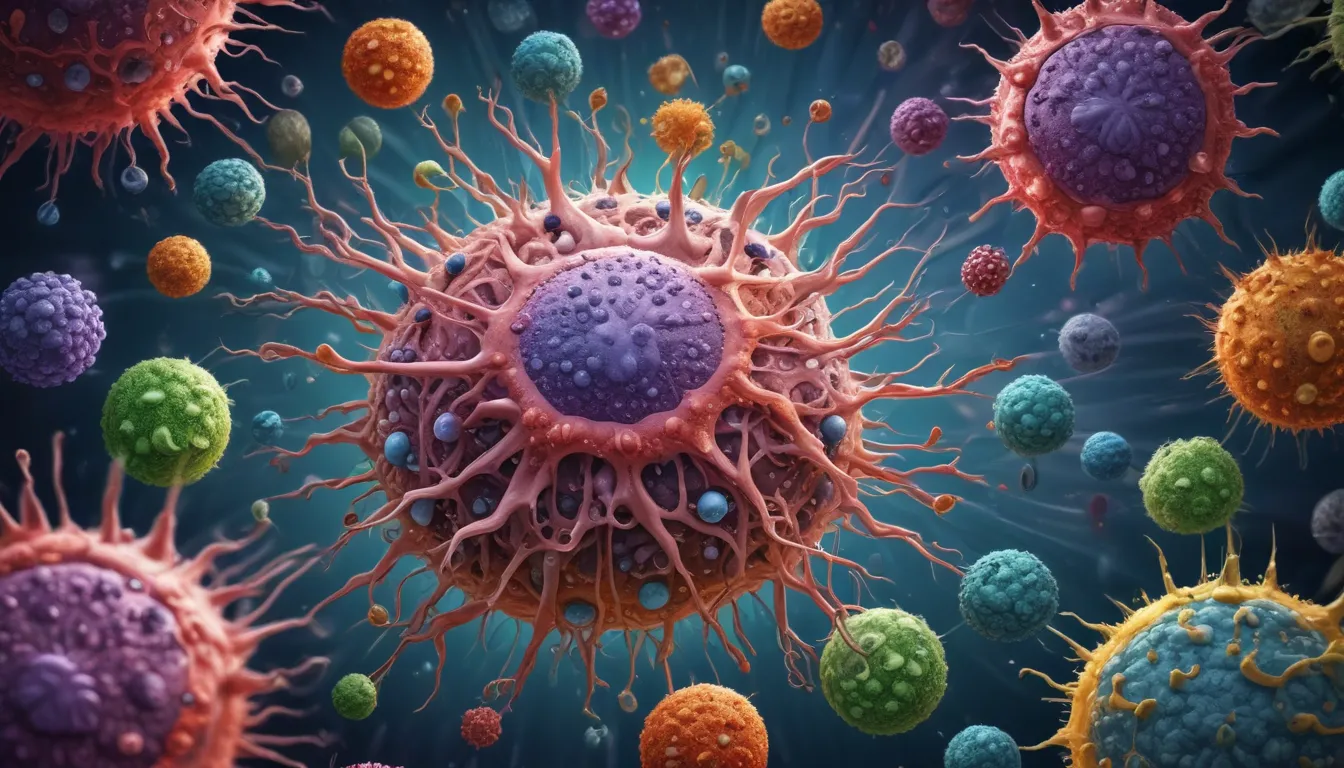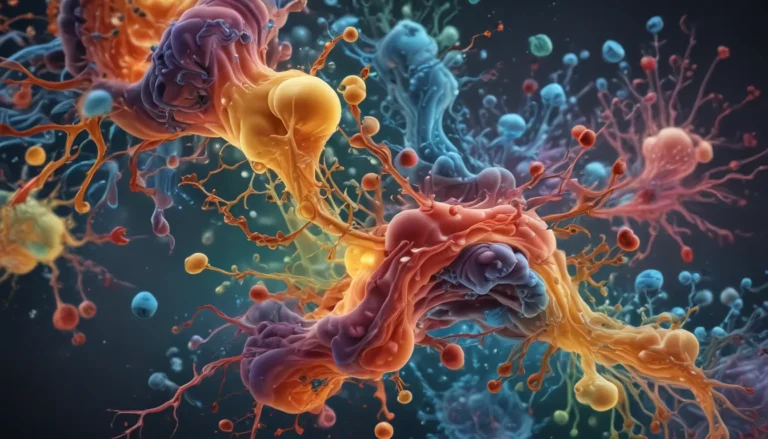A Note About Images: The images used in our articles are for illustration purposes only and may not exactly match the content. They are meant to engage readers, but the text should be relied upon for accurate information.
In our body’s intricate defense system against pathogens, cell-mediated immunity stands out as a remarkable process involving specialized cells that target and eliminate foreign invaders. This essential mechanism plays a pivotal role in maintaining our overall health and well-being. Join us as we unravel the mysteries of cell-mediated immunity with 11 fascinating facts that showcase its significance and complexity.
Key Takeaways:
- T cells: The superheroes of the immune system, fighting off viruses and abnormal cells.
- Cell-mediated immunity: A smart security system that remembers past intruders and responds quickly to future threats.
Understanding Cell-Mediated Immunity
Cell-mediated immunity is a critical component of the immune system that protects against intracellular pathogens and abnormal body cells. It is crucial in fighting viral infections, controlling tumor growth, and preventing the reactivation of latent infections.
T Cells: The Central Players
T cells, also known as T lymphocytes, are the key orchestrators of cell-mediated immunity. These specialized white blood cells recognize and destroy infected cells by direct attack or by releasing chemicals that activate other immune cells.
Antigen Presentation and T Cell Activation
Antigen presentation is essential for activating T cells. Antigen-presenting cells, like macrophages and dendritic cells, capture pathogens, break them down, and display fragments on their surface to stimulate T cell activation.
Helper T Cells: Orchestrating the Immune Response
Helper T cells produce cytokines, chemical signals that stimulate other immune cells like B cells and cytotoxic T cells to eliminate pathogens and infected cells effectively.
Cytotoxic T Cells: Destroyers of Infected Cells
Cytotoxic T cells, also known as killer T cells, identify and kill infected cells by releasing cytotoxic molecules that trigger apoptosis in the target cells.
Natural Killer Cells in Cell-Mediated Immunity
Natural killer (NK) cells, though not T cells, play a significant role in cell-mediated immunity by identifying and destroying abnormal cells like virus-infected cells and cancer cells.
Long-Term Protection with Memory T Cells
Cell-mediated immunity provides long-lasting protection through memory T cells generated during an initial infection. These memory cells recognize and respond effectively to the same pathogen upon re-exposure.
Autoimmune Diseases and Cell-Mediated Immunity
In some cases, cell-mediated immunity can lead to autoimmune diseases like multiple sclerosis and rheumatoid arthritis, where the immune system mistakenly targets normal cells in the body.
HIV and Impaired Immunity
HIV targets and infects CD4+ T cells, weakening cell-mediated immunity and leading to the development of AIDS, compromising the body’s ability to defend against infections.
Vaccines and Cell-Mediated Immunity
Vaccines stimulate cell-mediated immune responses by training the immune system to recognize and respond effectively to specific pathogens, enhancing the body’s ability to combat infections.
Cancer Immunotherapy: Harnessing Cell-Mediated Immunity
Advancements in cancer research focus on utilizing cell-mediated immunity for cancer treatment, aiming to enhance the body’s immune response against cancer cells for better patient outcomes.
Conclusion
Cell-mediated immunity is a vital defense mechanism against pathogens and abnormal cells, highlighting the importance of understanding its intricacies for maintaining overall health. From T cells activation to memory cell formation, cell-mediated immunity provides lasting protection against infections and plays a critical role in combating cancer cells.
FAQs
-
What is cell-mediated immunity?
Cell-mediated immunity involves specialized immune cells targeting and eliminating infected and abnormal cells to protect the body. -
How is it different from humoral immunity?
Cell-mediated immunity relies on T cells direct involvement in targeting pathogens, while humoral immunity uses antibodies produced by B cells. -
How are T cells activated?
T cells are activated when antigens are presented by antigen-presenting cells triggering a series of responses leading to T cell activation. -
Can cell-mediated immunity prevent viral infections?
Yes, cytotoxic T cells play a crucial role in recognizing and eliminating virus-infected cells to control viral infections. -
Are memory T cells involved in cell-mediated immunity?
Memory T cells play a vital role in providing long-term protection against specific pathogens after an initial encounter. -
Can cell-mediated immunity be enhanced?
Cell-mediated immunity can be enhanced through approaches like vaccination, stimulating the immune system to generate memory T cells. -
Can it be compromised?
Factors like HIV/AIDS, immunosuppressive medications, and genetic disorders can compromise cell-mediated immunity, weakening the immune response.
Exploring the wonders of cell-mediated immunity provides valuable insights into our body’s defense mechanisms. Understanding how our immune system works at a cellular level not only enlightens but also empowers us to appreciate the complexity and importance of our body’s immune responses.






